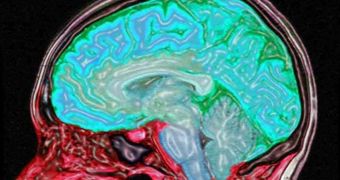For the first time ever, researchers at the University of Cambridge, in the United Kingdom, announce the existence of a clear, provable link between levels of the neurotransmitter serotonin in the brain and a person's ability to control their anger.
According to the conclusions of their newest study on the issue, it would appear that this deprivation has an important effect on areas of the brain that help control anger. Low serotonin levels can occur when people are hungry or subjected to a lot of stress.
Researchers have known for quite some time that serotonin levels play an important role in anger management, but thus far no one has been able to document the link in a clear, scientific manner.
The new data the team collected could go a long way towards explaining why people who display low serotonin levels tend to be more aggressive than others, and more likely to go into a fit at the smallest sign of trouble.
Details of the research were published in the September 15 issue of the esteemed medical journal Biological Psychiatry. The study was carried out on healthy volunteers, whose serotonin levels were manipulated through a carefully-selected diet.
When the time came to conduct the experiments, participants received a mixture of amino acids that lacked the building block of serotonin (tryptophan) on the serotonin depletion day, and a normal dose of tryptophan on the placebo days. Participants were not told which was which.
All of them were then made to watch images showing faces that displayed angry, sad or neutral emotions, while their brains were hooked up to a functional Magnetic Resonace Imaging (fMRI) machine. The device enabled experts to see how brain regions interact.
They were especially interested in noticing how the brain reacted when test subjects saw angry faces. When serotonin levels were low, communications between a region of the emotional limbic system called the amygdala and the frontal lobes became weaker.
The amygdala is known to control fear and the flight-or-fight response, whereas the prefrontral cortex is in charge of regulating emotions and superior cognitive abilities. Therefore, lower serotonin levels impair our ability to control the emotions that are always generated in the amygdala.
“We’ve known for decades that serotonin plays a key role in aggression, but it’s only very recently that we’ve had the technology to look into the brain and examine just how serotonin helps us regulate our emotional impulses,” says Dr. Molly Crockett.
“By combining a long tradition in behavioral research with new technology, we were finally able to uncover a mechanism for how serotonin might influence aggression,” adds the expert, currently at the University of Zürich, but formerly a PhD student at the Cambridge Behavioral and Clinical Neuroscience Institute.

 14 DAY TRIAL //
14 DAY TRIAL //